 Buying a nutritional supplement can be a confusing experience.
Buying a nutritional supplement can be a confusing experience.
There are so many brands, making so many claims. Which ones can you believe?
There are limitless ingredients, including way too many that you’ve never even heard of.
At the end of the day, you just want to buy a supplement that works.
Best 5 Supplements has one job: Helping you buy the supplements that work, and avoid the duds that don’t.
To get there, we don’t just “review” supplements: We analyze them.
This How to Buy a Good Supplement guide is based on the Best5 formula-breakdown process.
Learn about some of the strategies we use in analyzing supplements, use these strategies yourself, and you can maximize your chances of buying a supplement that actually works to support your health.
Table of Contents
Start at the root: What is your health goal?
To buy a good supplement, first you must identify the exact reason why you want to take a supplement in the first place; things like sharper focus, bigger muscle growth, sharper vision, less weight, etc.
Whatever it is you’re hoping to achieve, do some basic Wikipedia research to learn about the body system you are about to address with nutritional supplements.
Take ten to fifteen minutes, do a quick primer. You don’t need to be an expert. But if you want to buy a supplement that works, this first step — gathering background health information — is non-negotiable.
Identify the best nutrients for your concern.
While zeroing in on your health target, you may have come across some mentions of related nutrients.
Now’s the time to collect them, identify some more, put them all together and figure out which ones show the greatest potential to help.
If you want to give yourself the best possible chance of getting nutritional health benefits, then you must know:
- Which nutrients are scientifically shown to help?
- Which forms of those nutrients are most effective?
- What dosages of those nutrients brought benefits?
There are many more key nutrient & ingredient questions, but three are a good starting point.
Where do you find the answers to these questions?
If you do the research yourself, be warned: It is time-consuming… but worth it.
If you make an uninformed supplement purchase, you’re taking a gamble with your money (and your health!). And due to the very nature of the nutritional supplement industry, when you make that kind of gamble the odds are not in your favor.
There’s a good chance that if you buy blind, you will lose your cash on a worthless product that doesn’t work.
Don’t listen to that random chatter that you heard at the gym, either. That’s not reliable information. And don’t listen to that chain vitamin store clerk! They’ve got agendas, not answers.
Instead, visit credible, unbiased online research resources.
That’s credible resources. About.com doesn’t count. Neither does Livestrong, Buzzle, Huffington Post or Daily Mail. No way.
If you want to buy a good supplement, you’ve got to find the BEST information on the nutrients that are in that particular formula.
Here are some high-quality, credible research resources we use all the time here at Best 5 Supplements, and why we use them:
The BEST Supplement Research Websites for Finding Nutrients that Work
Government websites. Highly credible and ultra-conservative. If anything, the US government seems to have a bias against nutritional supplements… but still provides valuable insight:
- National Institutes of Health (NIH)
- NIH Office of Dietary Supplements
- National Center for Complementary and Integrative Health
Academic websites. Colleges and Universities are credible too, but often are a lot more open-minded about the potential of nutritional supplementation than government sites:
- Oregon State University’s Linus Pauling Institute
- University of Maryland Medical Center
Pay websites. There are awesome pay sites out there that aggregate credible dietary supplement info for you. The drawback is expense; with many in the $150-$300+ per year range:
Pubmed website. This is the real goldmine. Pubmed is a massive database of 25 million health studies and clinical trials. The best supplement info is here, but it can be hard to find and hard to understand.
- Pubmed Tip: Do a search like this: “[health issue] [nutrient name]”, and check off “Free Full Study Only” at the left side of the screen. Full studies are great: They share a lot more information, and have rich introductions that can give you an accurate snapshot of a nutrient’s reputation.
What about animal research? This is a matter of personal opinion. Test-tube studies, petri-dish studies, rat studies, rabbit studies… all are a step down from human clinical trials. Plenty of supplements are based on animal research only. We treat animal studies on a case-by-case basis.
Get the FACTS about the products you’re checking out.
Now you’ve done your background research. You know what nutrients, or what combination of nutrients, you want to try for your health concern. You even have an idea which dosages have been shown effective in clinical studies.
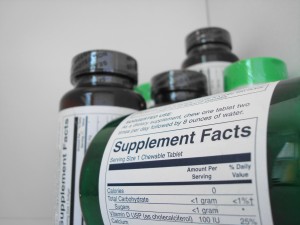
Learn how to decode supplement facts, and you can maximize your chances of buying a good supplement.
The next step is to find some products that supply the ingredients you want. And when you do, the first step you should always take:
Scrutinize the Supplement Facts.
Supplement Facts are right there on the product label or box, in plain black and white. Supplement facts cannot hide. And ultimately, supplement facts represent the truth (or the closes thing to it) of what is actually in the supplement you are about to buy.
The supplement facts are the most transparent part of any supplement, and the most important thing to evaluate when choosing a good one to buy.
Supplement facts reveal the nutrients and combinations that make up a formula. And the BEST supplements will almost always tell you the exact dosages of its ingredients… right down to the amount of active compounds in their herbs.
Let’s dig deeper into what to look for when evaluating the supplement facts.
Look for the “Critical Mass” Dosages that Unlock Health Benefits.
You want to hit the sweet spot with dosage. That’s the clinical range where a nutrient has shown benefits – or at least bio-activity – in research.
So, look at the dosage, see how it stacks up and move on… right?
Not so fast. It gets more complicated than that. Bigger dosage isn’t always better. And even a dosage that his clinical range might fail.
Absorption is one reason why. Some really cheap ingredients are very difficult to absorb. On the other hand, advanced ingredients are sometimes optimized for absorption and bioavailability, so more of the active nutrition reaches your bloodstream.
Really, there’s a lot more factors that go into evaluating dosage, some of which we’ll cover in the next section. But for now, remember:
Dosage tells you how much nutrient is in a supplement, but it is not an absolute reflection of nutritional activity.
An ultra-potent ingredient at a lower dosage might be more powerful than a weak ingredient at a higher dosage. And a lot of that comes down to knowing there are many ingredient forms on the market… and understanding which of those forms are the most effective.
Figure Out Which Nutrient Forms are Most Effective.
A single nutrient can appear as multiple distinct forms, each with its own advantages and disadvantages. here are some examples of what we mean:
- Natural Vitamin E is far more absorbable than synthetic E
- Methylcobalamin Vitamin B12 is more active than cyanocobalamin B12
- P-5-P Vitamin B6 is far more potent than Pyridoxine B6
Natural Vitamin E vs. Synthetic Vitamin E
Discerning between the many different vitamin and mineral forms in nutritional supplements is just one part of the equation.
In herbal formulations, choosing the right form can be even more complicated… but it is just as critical for supplement success.
Some types of botanical ingredient forms include:
Raw botanicals. Usually dried and powdered, this form of herb is cheap, and makes for affordable supplements. However, the quality of an herb can change quite dramatically depending on harvests, weather, region grown, and a multitude of other factors. For this reason, we can never be absolutely sure how much “active ingredient” is in a plain, raw herb.
Standardized Herbs. These solve the raw botanicals problem: Standardization delivers a consistent dosage of a specific herb’s active constitutents. This level of nutritional activity is even guaranteed to be the same from batch to batch. Standardized herbs are more expensive, but you always get the beneficial active compounds that make the supplement work.

This is what “standardized” looks like on a label: Of the 150 mg Bacopa Monnieri in each capsule, 45% is bacosides… which are the active Bacopa compounds that deliver brain benefits. From Mind Lab Pro.
Herbal extracts. These extracts take an herb and distill it, if concentrating it over and over again to pack a lot of nutritional benefits into a small serving size. They are typically shown as 5:1, 10:1, 100:1, etc. What this means, in the case of a 100:1 herbal extract for example, is that 100 pounds of raw herb would be used to make 1 pound of extract… and that 1 pound contains the same beneficial nutritional activity that is found in 100 pounds of raw herb.

This example shows an herbal extract on the supplement facts: The Nettle Root herbal ingredient is highly concentrated to a 10:1 ratio. From Prime Male.
Branded Ingredients
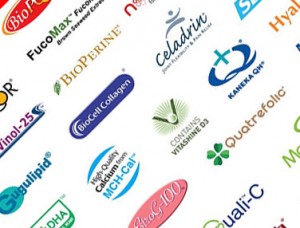
It seems like a lot more Branded Ingredients like these are being introduced & used in nutritional supplement formulations lately.
This form of ingredients, recognized by having a ™ or an ® after the ingredient name, are rising in popularity.
In branded ingredients, manufacturers will take a commodity nutritional ingredient — such as a raw herb — and develop some sort of patented process or new technology that somehow makes the herb more effective. This might mean:
- Combining herbs or ingredients in specific, patented ratios that seem to unlock benefits
- Processing an herb to make it far more absorbable & bioavailable than in its plain form
- Making a nutrient easier and more comfortable to take, thereby improving compliance
Another feature of branded ingredients is that some are clinically researched, including many that were shown to be effective. Of course, the studies are most often conducted by the companies who manufacture the branded ingredients.
But the bottom line is, companies who patent their nutritional ingredients and conduct clinical research studies are investing a TON of money. They must feel that they have something worthwhile.
Now, not all branded are ingredients are great. Some seem to leverage the “branded ingredient” angle as a marketing ploy only, without substantive advantages to back it up.
But when branded ingredients are done right, they can be amazing luxury formulations with vast archives of research and apparent game-changing potential.
A Tale of Two Branded Ingredients
Check out the following A/B comparison of two branded ingredients. Just by taking a quick look at their respective websites, you can get an idea which is a nutritional advancement, and which is a marketing ploy:
Pycnogenol is an example of a quality branded ingredient. Visit their website; it’s clean, professional, and there’s loads of great information, including full clinical studies published in their entirety.
Slimpro is an example of a not-so-trustworthy branded ingredient: Their website is dated, copy is sloppy (“for majority of us”? Really?), and they don’t share any of their clinical research.
When you look at these two websites, you’ll get a lesson in using your intuition to gauge a branded ingredient’s credibility. If their site looks like crap and hides the results of clinical research that they spent thousands upon thousands of dollars on, it’s probably a good idea to walk away.
At this point in the supplement buying process, you have gained knowledge about the nutrients, combinations that work, and have narrowed the vast number of choices down to a handful.
This is where another big factor comes in that can help you make a choice… and buy a supplement that works.
Research the Supplement Manufacturer’s Reputation.
Word-of-mouth reputation carries more weight than ever before, especially in terms of nutritional supplements.
People can actively share whether or not a supplement worked for them, and what their buying experience was like.
By looking on Facebook, message boards, Amazon reviews, and other online forums, you can get a general sense of whether people love a nutritional supplement or hate it.
Along the way you have to look out for “shill” reviews… but after you have done a lot of research, it gets pretty easy to tell which reviews are authentic and which are fake.
In addition looking at the reputation of the formula, it’s a great idea to check out the reputation of the company that makes it.
Unfortunately, there are a lot of sketchy companies in the nutritional supplement industry today, so you always have to be on the lookout.
Here are some questions we ask when evaluating the credibility of a supplement manufacturer:
Has the manufacturer received a lot of complaints?

Considering how many fake supplement reviews are out there, we figure 1 complaint is equivalent to about 10 positive reviews.
Do some searches for the supplement and manufacturer in question on Ripoff Report, Pissed Consumer and the Better Business Bureau.
The BBB tends to only register with the bigger, more prominent selling nutritional supplements.
The other “consumer complaint” sites are far more straightforward – and oftentimes, hilarious – reports that shred manufacturers to bits when they pull scams, including the Autoship Scams that are notoriously prevalent in the supplement industry.
Has the manufacturer been in trouble with the government?
Do a search on the company name and/or product name combined with FDA.gov and FTC.gov. This is a telling query. You may find product recalls, warnings, legal actions and more that tarnish a company’s reputation and make it hard to trust their supplements.
Has the manufacturer been in trouble with the law?
If it’s a large manufacturer you’re investigating, do a search for the company and/or product name combined with “lawsuit” or “class-action lawsuit” to see if there is any scandalous past associated with their supplements.
One Last Check for Red Flags, X-Factors & Bad Vibes.
By now you’ve got a ton of information on the supplement you want to buy. You know their ingredients, and have an idea if they’re science-backed. You’ve looked at the dosages and adjusted for the quality of their ingredient forms. You’ve even checked into the manufacturer’s reputation and history.
But before you plunk down your hard-earned cash on that supplement, it’s a good idea to do one last check for any glaring abnormalities.
This final step is important, and it takes some attention to their detail. But really dissecting a supplement’s overall feel can tell you a lot about the quality of the product… including if it will work.
Visit the supplement’s website. Is it clean and modern? Is it fast and well-organized? Does it have a feel of credibility; trustmarks, etc.? If the website looks like it was designed in the year 2000, it makes it hard to believe their supplements are advanced or cutting-edge.
Read their copy. Is it well-written? Grammatically correct, clear and concise? If a supplement company spells “calcium” wrong (yes, we’ve actually seen this happen… on a label, no less!), it makes them seem careless and sloppy – two “must-avoid” qualities when it comes to buying a supplement that works.
Supplement Facts Errors are BIG Red Flags!

Label DERP! Taken from OptiMind, a questionable “brain supplement.”
Check out the image above. At first glance, these facts look OK. But a closer look reveals a big error: “Vitamin B12 (as Pyridoxine HCl).”
Pyrixodine HCl is Vitamin B6, not Vitamin B12!
Making matters worse, this error was found on a so-called “brain supplement.” Not too smart! Not focused or attentive either. Mistakes like these make it easy to weed out bad supplements.
Consider their claims. This is a big one. If your potential supplement purchase makes outrageous claims about what their formula can do, you might want to walk away. What’s considered outrageous? Anything “miraculous.” Anything that claims to prevent or treat diseases; or to reverse conditions that cannot be reversed.
Not only are claims like these illegal in the eyes of the FDA, they are deceptive to the consumer. Just think; those claims could lead you to use the formula for years spending thousands of dollars… and get no results. All because you were misled by an unethical manufacturers’ make-believe health claims. Huge red flag.
Conclusion
When you buy a supplement, you are making an investment in your health. You expect to get benefits.
But by the same laws that keep them affordable & available without a prescription, nutritional supplements do not need to prove that they are effective — or even safe — before being sold.
This regulatory loophole attracts unscrupulous parties to the nutritional supplement industry. They know that they can create cheap, ineffective formulas and still get rich by marketing aggressively… and by targeting consumers’ deepest desires.
But there are good formulas out there too.
The BEST of them can enhance life itself. If you buy them, you get a return on your health investment that goes way beyond the monetary.
This Best5 Guide helps you find the formulas that work.
You’ll now recognize sham formulas and move on, potentially saving yourself thousands of dollars. You’ll analyze labels instead, and have a better eye for picking out effective formulas. You will know How to Buy a Good Supplement.
This guide is just the tip of the iceberg. Come back to Best 5 for more inside tips on supplements — including our unique take on all supplements ranging from the worst to the best.

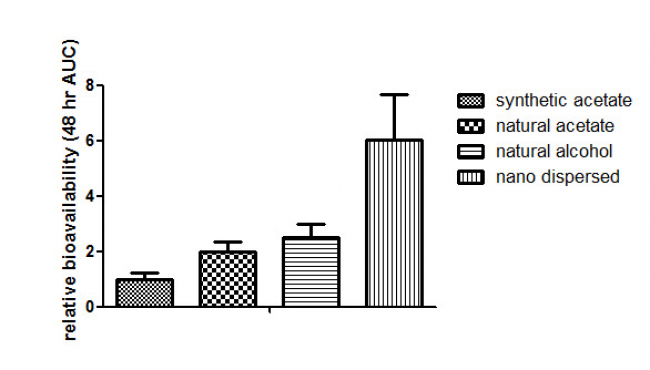
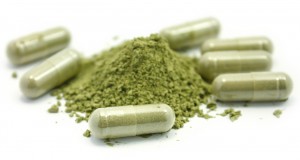
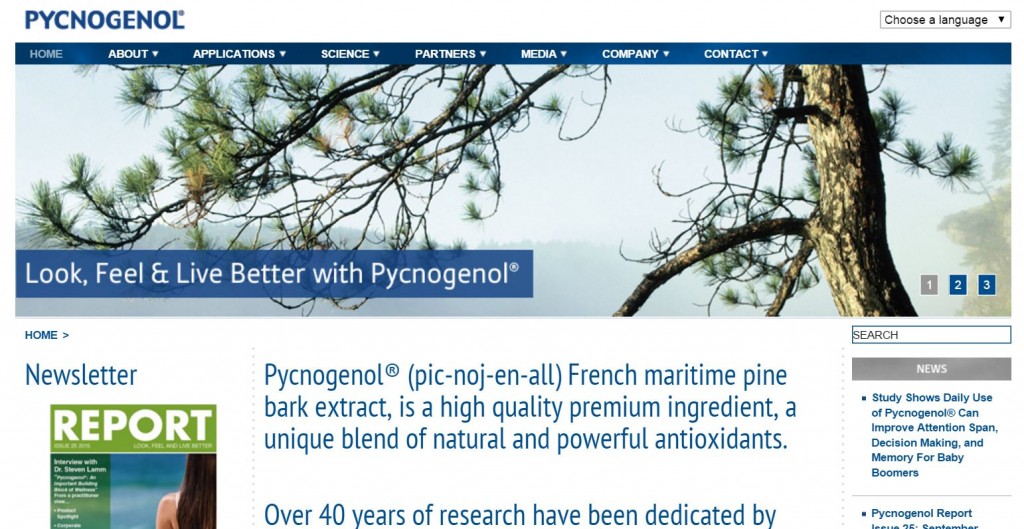
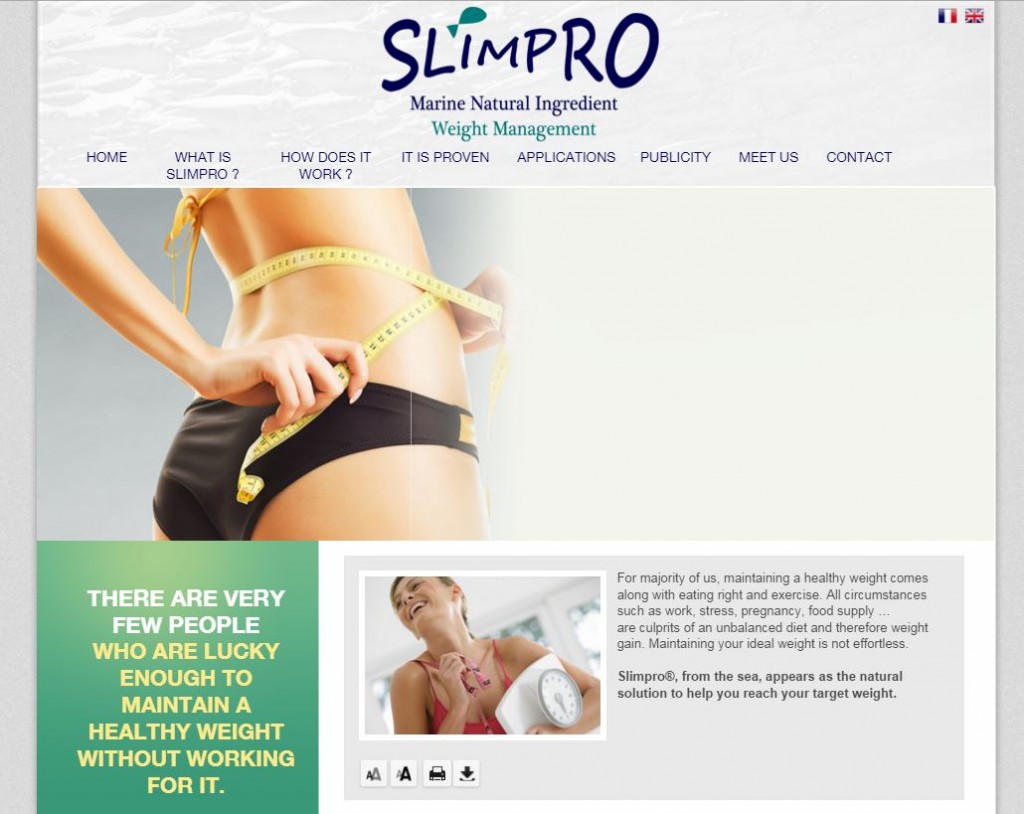

Leave a Reply